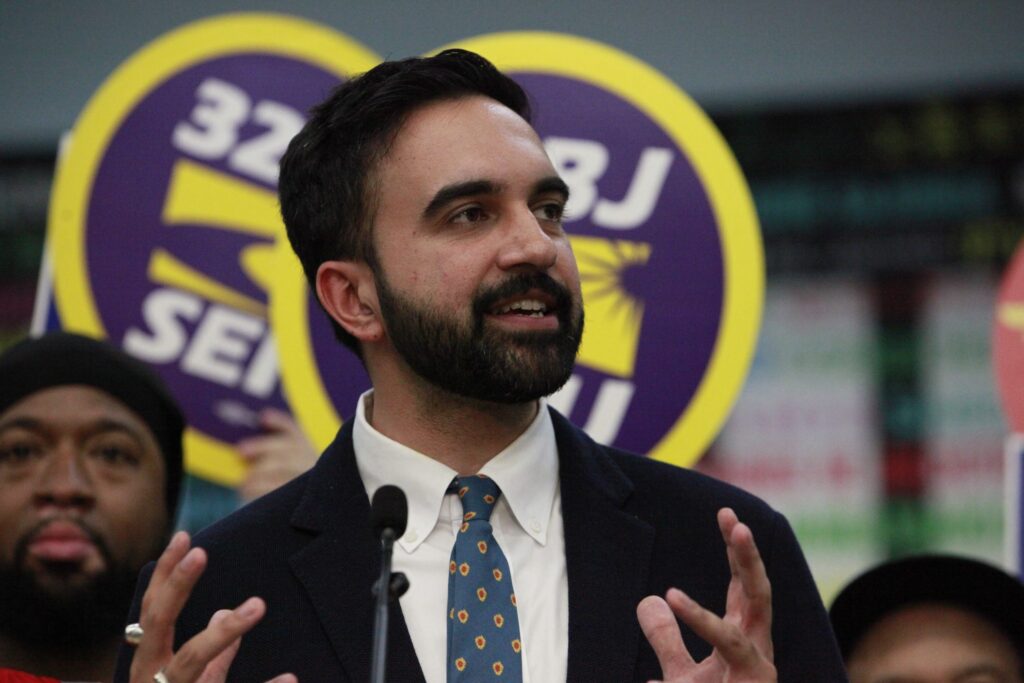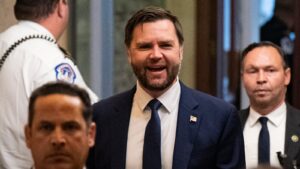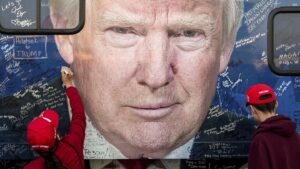
President Donald Trump’s Homeland Security Advisory Council, an assembly featuring notable figures such as Rudy Giuliani and Bo Dietl, convened for its inaugural meeting on Wednesday. The agenda swiftly pivoted to focus on Zohran Mamdani, a New York City mayoral candidate, highlighting the political tensions surrounding his campaign.
The meeting, intended to address national security threats, saw Giuliani delivering a speech against asylum-seeking immigrants. This prompted Department of Homeland Security Secretary Kristi Noem to engage in a spirited exchange, suggesting Giuliani consider another run for New York City mayor. The suggestion was met with applause, underscoring the political undercurrents within the council.
Political Dynamics and Strategy
Giuliani, a veteran Republican, discussed the strategic landscape of the New York City mayoral race. He identified Curtis Sliwa as the Republican candidate and described Eric Adams, the incumbent mayor running for reelection, as “kind of our candidate” due to his alignment with certain Trump policies. However, Giuliani saved his sharpest critique for former governor Andrew Cuomo, who lost to Mamdani in the Democratic primary but could still launch an independent campaign.
“I’ve known him since he was 15 years old. His mother would describe him as, ‘Well, Chris is the smarter boy,’” Giuliani quipped, referencing Cuomo’s brother, a journalist.
The discussion soon centered on Mamdani, a 33-year-old Democratic Socialist advocating for rent caps, police accountability, and what he terms “Trump-proofing NYC.” Giuliani attempted to frame Mamdani as a dual threat, labeling him both an “Islamic extremist” and a “communist,” despite Mamdani’s clear stance on Israel and Gaza.
Homeland Security Council’s Role and Criticism
The Homeland Security Advisory Council, established post-9/11 to provide nonpartisan advice on security matters, typically avoids political entanglements. However, the meeting’s focus on Mamdani suggests a shift in its operational dynamics. The council’s current charter emphasizes advising on terrorist attacks and major disasters, yet the political discourse dominated the session.
David Chesnoff, a Las Vegas attorney and council member, criticized Mamdani’s perceived anti-American philosophy, referencing the presence of Hezbollah flags near Ground Zero. Chesnoff’s comments drew attention to the broader narrative of national security versus political ideology.
“We have somebody running for mayor … that applauds the very same philosophy and people that did that,” Chesnoff asserted, linking Mamdani to past threats.
Implications and Reactions
Secretary Noem’s remarks about expanding her department’s authority further fueled the controversy. Her comments came shortly after Trump threatened legal action against Mamdani, labeling him a “communist” and implying potential incarceration if Mamdani opposes Immigration and Customs Enforcement operations in New York City.
Mamdani, buoyed by union endorsements, responded to the council’s portrayal of him as a security threat. He dismissed the comments as distractions from his campaign’s core issues, emphasizing his commitment to representing marginalized communities.
“And ultimately, what I fear,” Mamdani stated, “is that if this is what Donald Trump and his administration feel comfortable about saying about the Democratic nominee for the mayor of New York City, imagine what they feel comfortable saying and doing about immigrants whose names they don’t even know.”
This development reflects the increasingly blurred lines between national security and political maneuvering as the 2024 elections approach. The Homeland Security Advisory Council’s meeting underscores the heightened scrutiny faced by candidates like Mamdani, whose platforms challenge established narratives.
As the political landscape continues to evolve, the implications of this meeting may influence both local and national discussions on security, immigration, and political ideology. The council’s actions and rhetoric could set a precedent for future interactions between political figures and advisory bodies.







